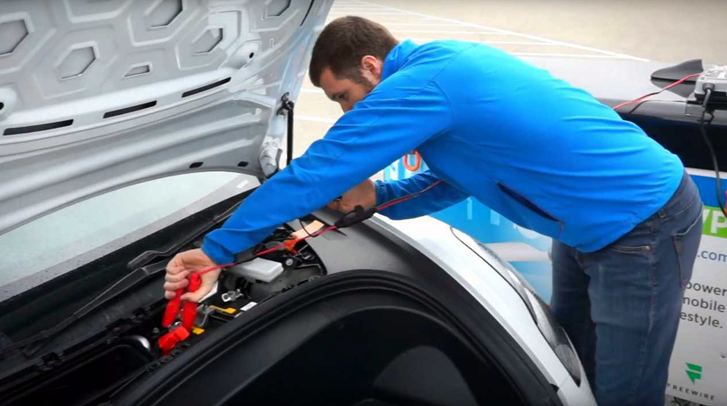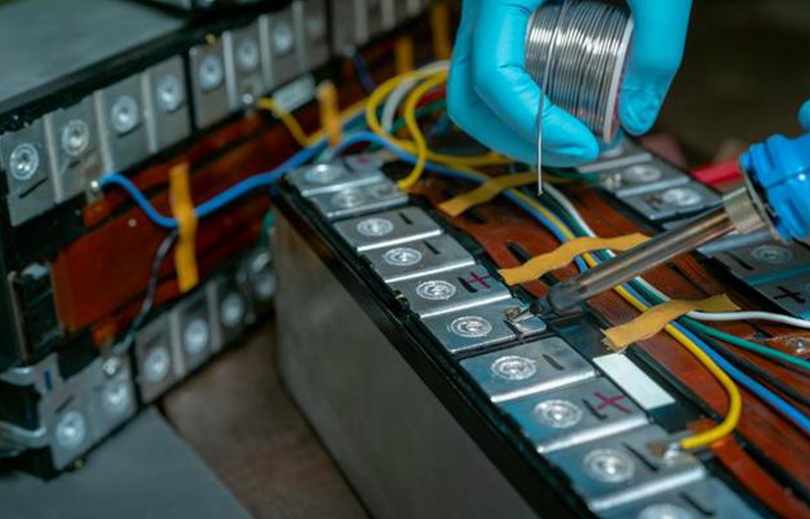Smart Grids Utilizing Lithium Batteries: Revolutionizing Energy Storage
Introduction:
The world’s increasing demand for electricity has led to the development of smart grids utilizing lithium batteries, which are revolutionizing energy storage. These smart grids are transforming traditional power networks into intelligent systems that can efficiently manage the generation, distribution, and consumption of electricity. This article explores the advantages, challenges, and future prospects of smart grids utilizing lithium batteries.
Advantages of Smart Grids:
1. Enhanced Energy Efficiency: Lithium batteries have a high energy density, allowing them to store large amounts of energy in a compact space. Smart grids utilizing lithium batteries can efficiently store excess energy during off-peak hours and supply it during peak demand, reducing wastage and improving energy efficiency.
2. Increased Renewable Integration: Smart grids can integrate renewable energy sources such as solar and wind power more effectively. Lithium batteries can store excess energy generated from these intermittent sources, allowing for a smoother integration into the grid and reducing reliance on fossil fuels.
3. Demand Response Management: Smart grids enable demand response management, where consumers can adjust their energy usage based on price signals or grid requirements. Lithium batteries play a crucial role in this process by storing excess energy during low-demand periods and supplying it during high-demand periods, ensuring a stable energy supply.
4. Grid Stability and Reliability: Lithium batteries provide fast response times and can quickly inject power into the grid during sudden fluctuations or outages. This enhances the stability and reliability of the electricity supply, reducing the risk of blackouts and grid failures.
Challenges of Smart Grids:
1. High Initial Costs: The installation and maintenance costs of smart grids utilizing lithium batteries can be high. However, as the technology advances and economies of scale are achieved, the costs are expected to decrease over time.
2. Limited Battery Lifespan: Lithium batteries have a limited lifespan and degrade over time, requiring replacement. However, with proper management and advancements in battery technology, the lifespan can be extended, reducing the overall costs and environmental impact.
3. Intermittency of Renewable Sources: The reliance on renewable energy sources such as solar and wind power introduces intermittency challenges in energy generation. Lithium batteries help mitigate this issue by storing excess energy during peak generation and supplying it during low generation periods, ensuring a stable energy supply.
Future Prospects:
1. Technological Advancements: Continuous research and development in lithium battery technology are expected to lead to improvements in energy density, lifespan, and overall performance. These advancements will further enhance the capabilities of smart grids, making them more efficient and reliable.

2. Grid Decentralization: Smart grids utilizing lithium batteries provide an opportunity for grid decentralization. Energy can be generated and stored locally, reducing transmission losses and increasing the resilience of the grid against natural disasters or cyberattacks.
3. Electric Vehicle Integration: With the increasing adoption of electric vehicles (EVs), smart grids can utilize the batteries of these vehicles for energy storage. This vehicle-to-grid integration can help manage peak demand and provide an additional source of energy during emergencies.
خاتمة:
Smart grids utilizing lithium batteries are revolutionizing energy storage and transforming traditional power systems into intelligent and efficient networks. The advantages of enhanced energy efficiency, increased renewable integration, demand response management, and improved grid stability outweigh the challenges of high initial costs, limited battery lifespan, and intermittency of renewable sources. With continuous technological advancements and the integration of electric vehicles, the future prospects for smart grids utilizing lithium batteries are promising. As the world continues to seek sustainable energy solutions, these smart grids will play a vital role in meeting the growing demand for electricity while minimizing the environmental impact.
-
 There is no doubt that lithium-ion automotive batteries play a critical role in the profound changes taking place in the automotive industry. As the core component of electric vehicles, it not only carries all the energy needed to drive the vehicle, but is also the key force driving the green and low-carbon transformation of the automotive industry. Today, let us...اقرأ أكثر
There is no doubt that lithium-ion automotive batteries play a critical role in the profound changes taking place in the automotive industry. As the core component of electric vehicles, it not only carries all the energy needed to drive the vehicle, but is also the key force driving the green and low-carbon transformation of the automotive industry. Today, let us...اقرأ أكثر -
 Introduction: In recent years, lithium batteries have gained immense popularity due to their high energy density, lightweight nature, and long lifespan. Amongst various types of lithium batteries, the lithium iron phosphate (LiFePO4) battery stands out as one of the most reliable and durable options available. This article aims to delve into the lifespan of a 100Ah LiFePO4 battery and highlight...اقرأ أكثر
Introduction: In recent years, lithium batteries have gained immense popularity due to their high energy density, lightweight nature, and long lifespan. Amongst various types of lithium batteries, the lithium iron phosphate (LiFePO4) battery stands out as one of the most reliable and durable options available. This article aims to delve into the lifespan of a 100Ah LiFePO4 battery and highlight...اقرأ أكثر -
 With the increasing concern for environmental sustainability and the need for efficient and cost-effective transportation, electric mobility has become a popular choice for many individuals. Electric bikes (ebikes) and scooters have emerged as excellent alternatives to traditional gasoline-powered vehicles. These electric vehicles not only offer a greener solution but also provide convenience and ease of use in urban areas. At...اقرأ أكثر
With the increasing concern for environmental sustainability and the need for efficient and cost-effective transportation, electric mobility has become a popular choice for many individuals. Electric bikes (ebikes) and scooters have emerged as excellent alternatives to traditional gasoline-powered vehicles. These electric vehicles not only offer a greener solution but also provide convenience and ease of use in urban areas. At...اقرأ أكثر -
 In recent years, portable electronic products have become an integral part of our lives. From smartphones to laptops, these devices have revolutionized the way we communicate, work, and entertain ourselves. And at the heart of these devices lies a powerful innovation that has transformed the electronics industry – lithium batteries. Lithium batteries have gained significant popularity due to their...اقرأ أكثر
In recent years, portable electronic products have become an integral part of our lives. From smartphones to laptops, these devices have revolutionized the way we communicate, work, and entertain ourselves. And at the heart of these devices lies a powerful innovation that has transformed the electronics industry – lithium batteries. Lithium batteries have gained significant popularity due to their...اقرأ أكثر -
 LiFePO4 batteries, also known as lithium iron phosphate batteries, are becoming increasingly popular due to their numerous advantages over other types of batteries. These batteries offer several advantages, including longer lifespan, faster charging times, and higher energy density. In addition, LiFePO4 batteries are more environmentally friendly than other types of batteries, making them an attractive option for those who are...اقرأ أكثر
LiFePO4 batteries, also known as lithium iron phosphate batteries, are becoming increasingly popular due to their numerous advantages over other types of batteries. These batteries offer several advantages, including longer lifespan, faster charging times, and higher energy density. In addition, LiFePO4 batteries are more environmentally friendly than other types of batteries, making them an attractive option for those who are...اقرأ أكثر -
 Trains are a vital mode of transportation for people and goods across the world. They offer a reliable, efficient, and cost-effective means of transport for commuters, freight, and other forms of cargo. However, the smooth operation of trains depends on several components, one of which is the locomotive starter battery. The locomotive starter battery is a critical component that...اقرأ أكثر
Trains are a vital mode of transportation for people and goods across the world. They offer a reliable, efficient, and cost-effective means of transport for commuters, freight, and other forms of cargo. However, the smooth operation of trains depends on several components, one of which is the locomotive starter battery. The locomotive starter battery is a critical component that...اقرأ أكثر -
 When it comes to enjoying a day out on the water, having a reliable boat is crucial. One key component that ensures a smooth start-up is the cranking battery. This essential part provides the necessary power to start the boat's engine and get you sailing in no time. In this article, we will explore the importance of a cranking battery...اقرأ أكثر
When it comes to enjoying a day out on the water, having a reliable boat is crucial. One key component that ensures a smooth start-up is the cranking battery. This essential part provides the necessary power to start the boat's engine and get you sailing in no time. In this article, we will explore the importance of a cranking battery...اقرأ أكثر

